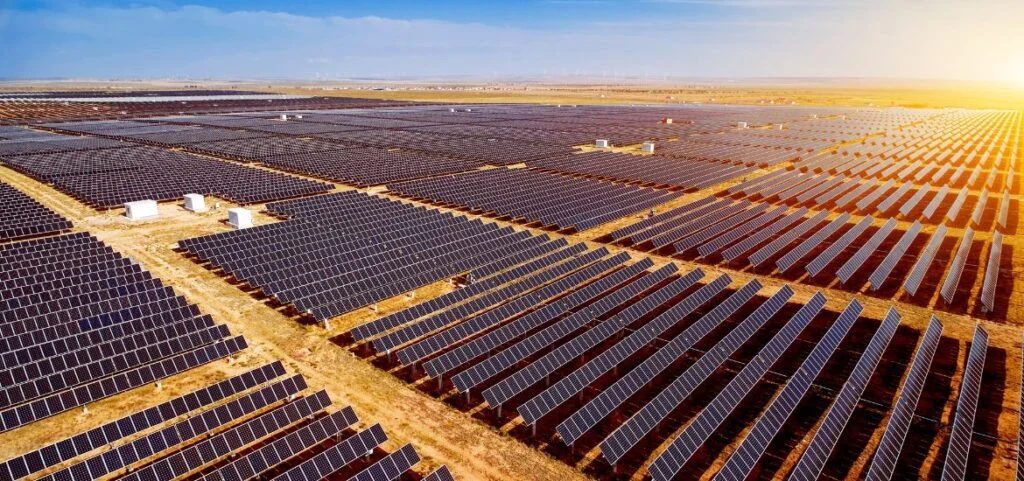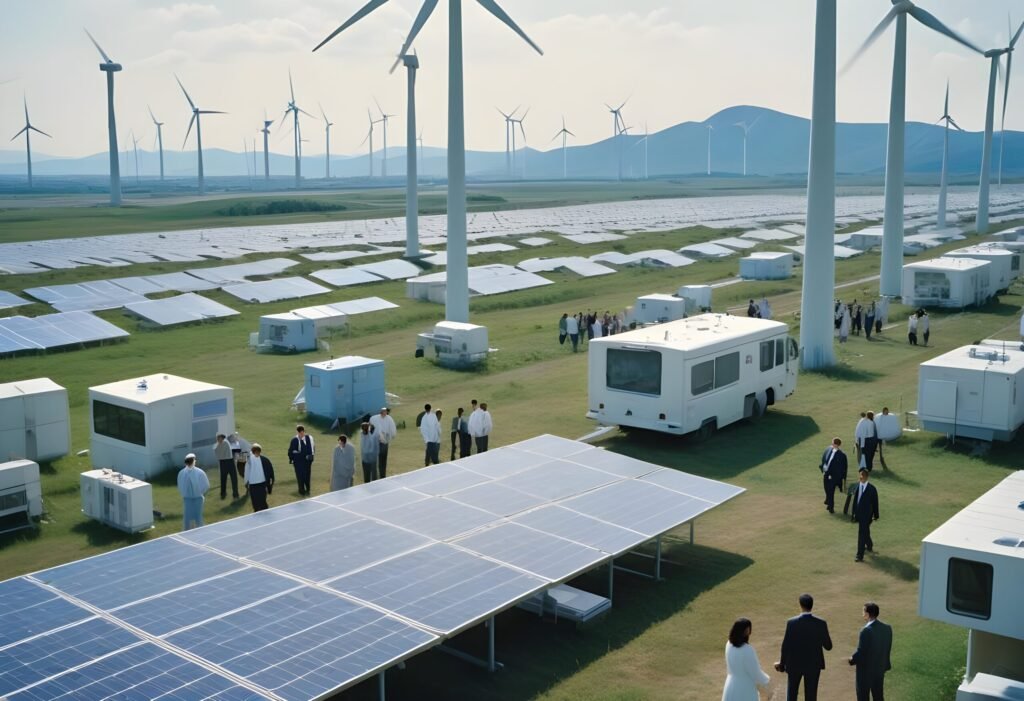The United Arab Emirates (UAE) is making big strides in the global fight against climate change. By investing heavily in clean energy, the country has significantly reduced its carbon emissions. The UAE’s leadership is committed to a greener future, focusing on solar, wind, and nuclear energy to cut down pollution and protect the environment.
UAE’s Commitment to Clean Energy
For years, the UAE has been known as an oil-rich country. However, it is now transforming into a leader in renewable energy. The government has taken serious steps to reduce its dependence on fossil fuels. This shift is part of the UAE’s long-term plan to achieve net-zero carbon emissions by 2050.

One of the most important projects in this journey is the Mohammed bin Rashid Al Maktoum Solar Park in Dubai. This is one of the world’s largest solar energy farms, producing clean electricity for thousands of homes. The UAE is also home to the Barakah Nuclear Plant, the first of its kind in the Arab world, which plays a crucial role in generating clean energy.

How UAE Is Cutting Carbon Emissions
The UAE’s focus on clean energy is already showing positive results. The country has successfully reduced its carbon footprint by increasing the share of renewable energy in its power production. The government is also encouraging businesses and industries to adopt eco-friendly practices.

One key initiative is the UAE Energy Strategy 2050, which aims to generate 50% of the country’s energy from clean sources. This will not only reduce carbon emissions but also create a more sustainable future. By switching to renewable energy, the UAE has cut down millions of tons of CO2 emissions, which is a major step toward fighting global warming.
Massive Investments in Green Technology
To achieve its climate goals, the UAE is investing billions in clean energy projects. The country has partnered with global organizations and leading companies to develop innovative green technologies. One of the biggest investments is in hydrogen energy, a clean fuel that could replace traditional fossil fuels in the future. The UAE is also exploring carbon capture and storage (CCS) technology, which helps to trap and store carbon dioxide emissions instead of releasing them into the air.
Additionally, the country is developing smart cities that use energy-efficient buildings and electric transport systems. Dubai and Abu Dhabi have launched projects to increase the use of electric vehicles (EVs) and expand charging stations to support this transition.
Leading the Region in Sustainability
The UAE is not only reducing its own carbon footprint but also helping other countries in the region go green. Through international partnerships, the UAE is exporting its clean energy expertise to developing nations. One such example is Masdar, a UAE-based renewable energy company that is building solar and wind projects in Africa, Asia, and beyond.
As the host of COP28, the UAE is using its global platform to push for stronger climate action. Leaders from around the world gathered in the country to discuss solutions for global warming, making the UAE a key player in the fight against climate change.
Challenges and Future Goals
Despite its progress, the UAE still faces challenges in its clean energy journey. The country’s hot climate makes it difficult to store and manage solar energy efficiently. However, scientists and engineers are working on advanced battery storage solutions to overcome this issue.
Another challenge is reducing the carbon footprint of industries like aviation and shipping, which are major contributors to emissions. The UAE is looking into sustainable aviation fuels and green shipping technologies to tackle this problem.
Looking ahead, the UAE aims to continue leading in clean energy innovation. With ongoing investments and strong government policies, the country is set to achieve its 2050 net-zero target, making the UAE a model for sustainability worldwide.
Conclusion
The UAE’s commitment to clean energy is a game-changer in the global fight against climate change. By reducing carbon emissions through renewable energy, green technology, and sustainable policies, the country is setting an example for the rest of the world. As the UAE continues on its green journey, it proves that even oil-rich nations can lead the way toward a cleaner, healthier planet.
Also read: Abu Dhabi’s Public Transport Gets a Huge Makeover: What You Need to Know













